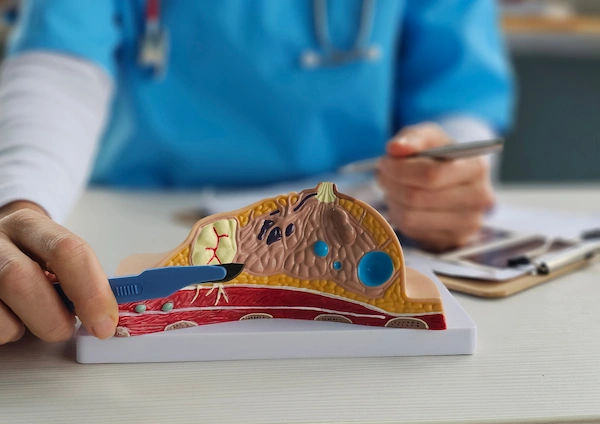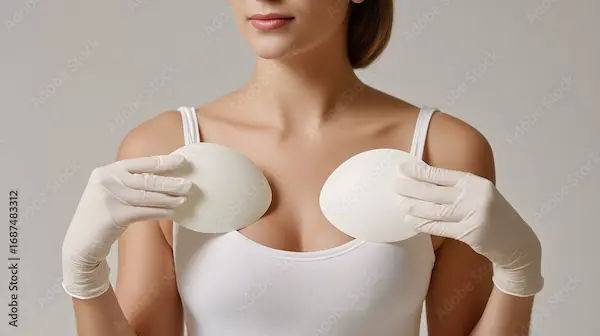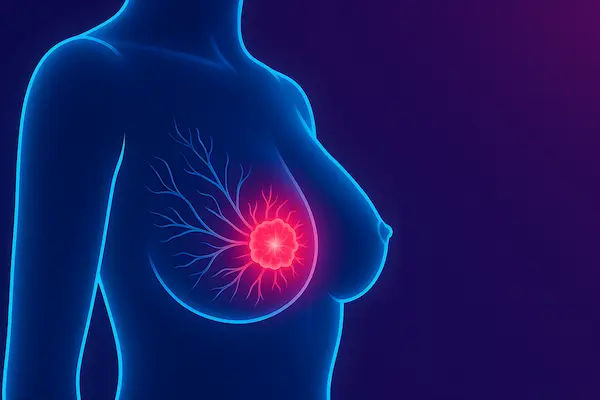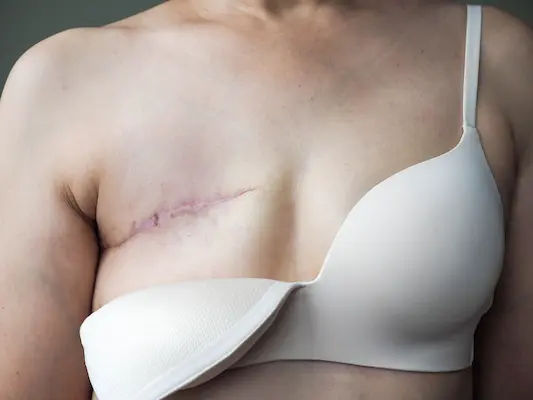The Best Lifestyle Practices for Healthy Breasts
Explore the best lifestyle practices for healthy breasts. Learn tips on diet, exercise, self-care, and regular screenings to support long-term breast health.


Introduction
Breast health is a vital component of overall well-being for women of all ages. While genetics play a role, research consistently shows that our daily choices have a profound impact. Adopting the best lifestyle practices isn't about a single grand gesture; it's about the cumulative power of consistent, healthy habits. This guide moves beyond fear and focuses on empowerment, providing you with a practical, evidence-based roadmap. We will explore how nutrition, physical activity, stress management, and proactive care work in synergy to support healthy breast tissue, regulate hormones, and significantly contribute to your long-term wellness. Whether you're in your twenties or your sixties, it's never too early or too late to start making choices that honor your body and health.
Understanding the Foundation: What is Breast Health?
Breast health encompasses more than just the absence of disease; it's about maintaining the overall well-being of breast tissue through prevention, awareness, and healthy living.
It's More Than Just Cancer Prevention
While reducing cancer risk is a crucial aspect, breast health also involves managing common benign conditions like fibrocystic changes (lumpy or tender breasts), cysts, and comfort. Healthy practices aim to minimize inflammation, support the lymphatic system that drains the breasts, and promote optimal cellular function.
The Role of Hormones in Breast Tissue
Breast tissue is highly sensitive to fluctuations in hormones like estrogen and progesterone. Throughout a woman's life from puberty through menstruation, pregnancy, and menopause, these hormones influence breast density, fluid retention, and cellular growth. A key goal of a healthy lifestyle is to promote hormonal balance through diet, exercise, and stress reduction.
Consult a Breast Surgeon for the best advice
Nutritional Power: Eating for Breast Wellness
What you eat provides the building blocks for every cell in your body, including breast tissue. A strategic diet is one of the most powerful tools you have.
The Colorful Plate: Antioxidants and Phytochemicals
Aim for a rainbow of fruits and vegetables. These foods are rich in antioxidants (like vitamins C and E) and phytochemicals (like carotenoids and flavonoids) that combat oxidative stress and cellular damage linked to chronic disease.
- Cruciferous vegetables: Broccoli, cauliflower, kale, and Brussels sprouts contain a compound called indole-3-carbinol, which may help metabolize estrogen in a healthier way.
- Berries: Blueberries, strawberries, and raspberries are packed with antioxidants.
- Leafy greens: Spinach and Swiss chard are excellent sources of folate and fibre.
Choosing Fats Wisely: The Omega-3 Advantage
Not all fats are created equal. Focus on incorporating anti-inflammatory fats and limiting pro-inflammatory ones.
- Omega-3 Fatty Acids: Found in fatty fish (salmon, mackerel, sardines), flaxseeds, and walnuts, these fats help reduce inflammation throughout the body.
- Monounsaturated Fats: Avocados, olive oil, and nuts are fantastic heart-healthy choices.
- Limit: Reduce intake of saturated fats (in red meat, full-fat dairy) and completely avoid trans fats (in many processed foods).
Foods to Limit: Sugar, Processed Meats, and Alcohol
- Sugar and Refined Carbs: High insulin levels from sugary diets may influence breast cell growth. Opt for whole grains like oats and quinoa instead.
- Processed Meats: Studies have suggested a link between high consumption of processed meats (like sausages and bacon) and increased health risks.
- Alcohol: Alcohol can increase estrogen levels and produce harmful byproducts in the body. The American Cancer Society recommends limiting alcohol to no more than one drink per day for women.
Move Your Body: The Protective Power of Exercise
Regular physical activity is a cornerstone of breast wellness, offering multiple layers of protection.
How Activity Regulates Hormones
Exercise helps maintain a healthy weight. Since fat tissue produces estrogen, managing weight through activity is a direct way to help regulate hormone levels. It also improves insulin sensitivity, further supporting hormonal balance.
Finding Your Rhythm: Cardio and Strength Training
- Aerobic Exercise: Aim for at least 150 minutes of moderate-intensity (brisk walking, cycling) or 75 minutes of vigorous-intensity (running, swimming) activity per week. This boosts circulation and lymphatic flow.
- Strength Training: Incorporating weights or resistance bands 2-3 times per week builds lean muscle mass, which helps manage weight and improve metabolism.
The Mind-Body Connection: Stress and Sleep
Your mental and emotional well-being is inextricably linked to your physical health, including your breasts.
Cortisol and Your Health: Keeping Stress in Check
Chronic stress leads to elevated levels of the hormone cortisol, which can disrupt sleep, increase inflammation, and weaken the immune system. Practices like meditation, yoga, deep breathing exercises, and spending time in nature are not just luxuries, they are essential practices for managing cortisol.
Prioritizing Sleep for Cellular Repair
During deep sleep, your body undergoes critical repair processes, including DNA maintenance and hormonal regulation. Aim for 7-9 hours of quality sleep per night. Establish a regular sleep schedule and create a restful environment to improve breast health naturally at a cellular level.
Being Proactive: Beyond Daily Habits
While daily habits form the foundation, proactive medical care is non-negotiable.
The Importance of Breast Self-Awareness
Know how your breasts normally look and feel. This allows you to notice any changes, such as a new lump, dimpling of the skin, nipple discharge, or persistent pain, and report them to a doctor promptly. If you notice any persistent changes, consult a doctor online with Apollo24|7 for further evaluation.
Scheduling Regular Clinical Exams and Screenings
Follow recommended guidelines for clinical breast exams and mammograms based on your age and personal risk factors. These screenings are vital for early detection. Discuss your personal screening plan with your healthcare provider.
Conclusion
Caring for your breast health is a lifelong journey of mindful choices that empower you and significantly impact your well-being. The best lifestyle practices: a nutrient-dense diet, regular physical activity, dedicated stress management, and quality sleep, create a powerful synergy that supports hormonal balance, reduces inflammation, and fosters resilient health. Remember, consistency is far more important than perfection. Start by integrating one or two new habits this week, and gradually build from there. Your body is your most precious asset; investing in it through these daily practices is the greatest act of self-care. If you have specific concerns about your risk factors or notice any changes, always seek professional guidance to create a personalised health plan.
Consult a Breast Surgeon for the best advice
Consult a Breast Surgeon for the best advice

Dr Anubhav Chittari
General Surgeon
3 Years • MBBS, M.S GENERAL SURGERY
Bengaluru
PRESTIGE SHANTHINIKETAN - SOCIETY CLINIC, Bengaluru
Dr Sumanth R
General Physician
2 Years • MBBS
Bengaluru
PRESTIGE SHANTHINIKETAN - SOCIETY CLINIC, Bengaluru
Dr Abhilash Mohanty
General Surgeon
6 Years • MBBS, MS General Surgery
Bhubaneswar
Balasore Government Hospital, Bhubaneswar

Dr. Swati Mukherjee
General Surgeon
16 Years • MBBS, DNB (General Surgery)
Kolkata
MCR SUPER SPECIALITY POLY CLINIC & PATHOLOGY, Kolkata

Dr. N Venkatesh
General Surgeon
14 Years • MBBS, MS (GENERAL SURGERY), Certificate course in Diabetes
Hyderabad
SrinivasaClinic, Hyderabad
Consult a Breast Surgeon for the best advice

Dr Anubhav Chittari
General Surgeon
3 Years • MBBS, M.S GENERAL SURGERY
Bengaluru
PRESTIGE SHANTHINIKETAN - SOCIETY CLINIC, Bengaluru
Dr Sumanth R
General Physician
2 Years • MBBS
Bengaluru
PRESTIGE SHANTHINIKETAN - SOCIETY CLINIC, Bengaluru
Dr Abhilash Mohanty
General Surgeon
6 Years • MBBS, MS General Surgery
Bhubaneswar
Balasore Government Hospital, Bhubaneswar

Dr. Swati Mukherjee
General Surgeon
16 Years • MBBS, DNB (General Surgery)
Kolkata
MCR SUPER SPECIALITY POLY CLINIC & PATHOLOGY, Kolkata

Dr. N Venkatesh
General Surgeon
14 Years • MBBS, MS (GENERAL SURGERY), Certificate course in Diabetes
Hyderabad
SrinivasaClinic, Hyderabad
More articles from Breast Problems
Frequently Asked Questions
What are the best vitamins for breast wellness?
While it's best to get nutrients from food, vitamins D and E are often highlighted. Vitamin D supports immune function and cell growth regulation, and low levels have been linked to higher risks. Vitamin E is a powerful antioxidant. Always talk to your doctor before starting new supplements.
Can exercise really reduce breast cancer risk?
Yes, substantial evidence supports this. Regular exercise helps control weight, reduce estrogen levels, lower inflammation, and boost immune function, all factors that contribute to a lower risk profile.
I have fibrocystic breasts. Should I change my diet?
Many women find relief by reducing caffeine and high-fat foods, though scientific evidence is mixed. A more reliable approach is to focus on the overall anti-inflammatory diet outlined above, which may help reduce breast pain and lumpiness.
How does alcohol affect breast health?
Alcohol can increase blood levels of estrogen and other hormones associated with breast cell growth. It also may damage DNA in cells. Limiting alcohol intake is a clear, modifiable risk factor.
When should I start getting mammograms?
Guidelines vary. Generally, average-risk women are advised to start annual or biennial mammograms at age 40-50. However, your personal and family history is crucial. Discuss your personalised screening timeline with a healthcare provider on Apollo24|7 to make an informed decision.




